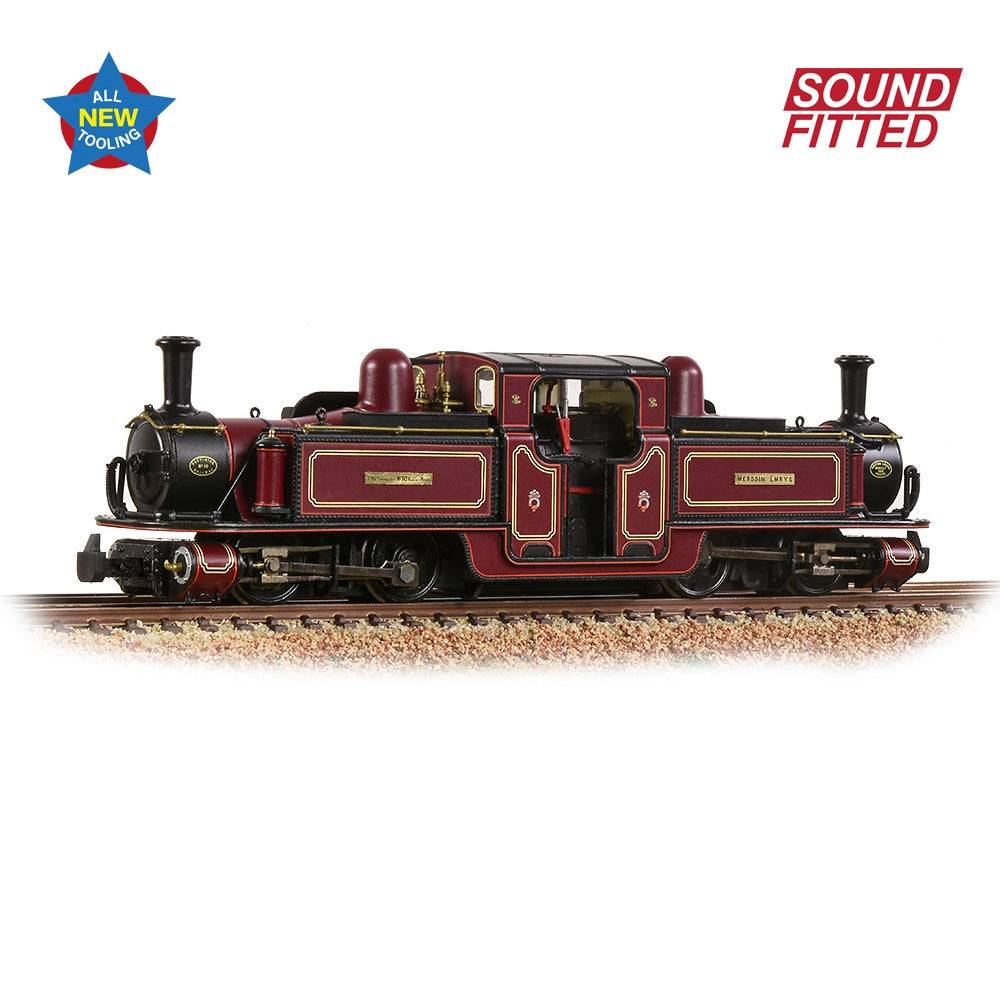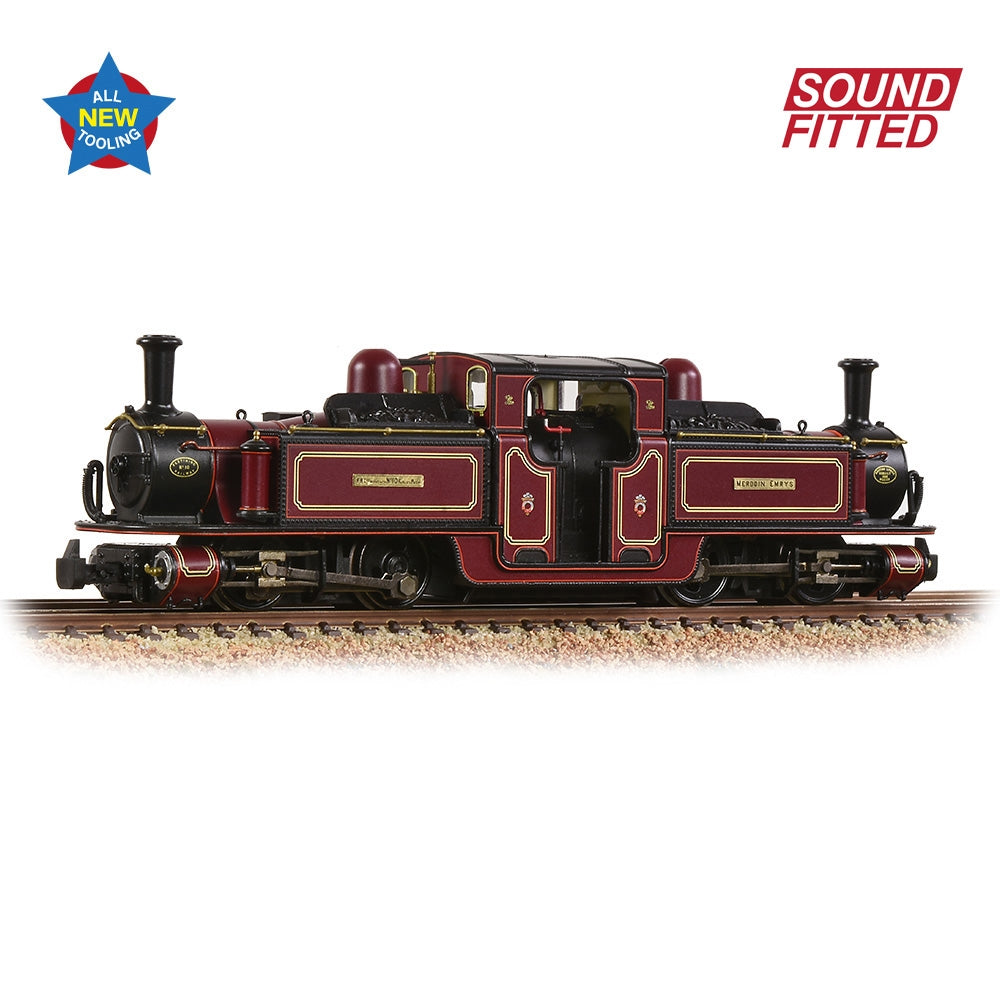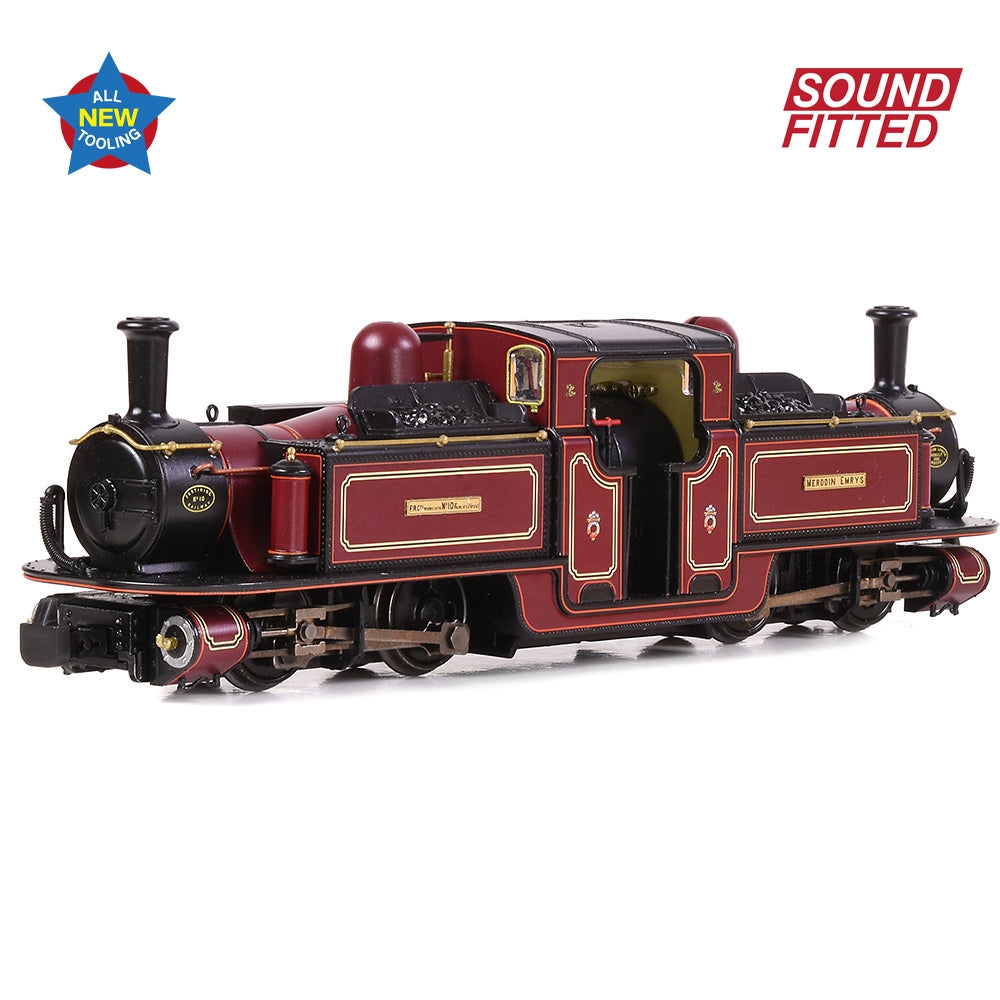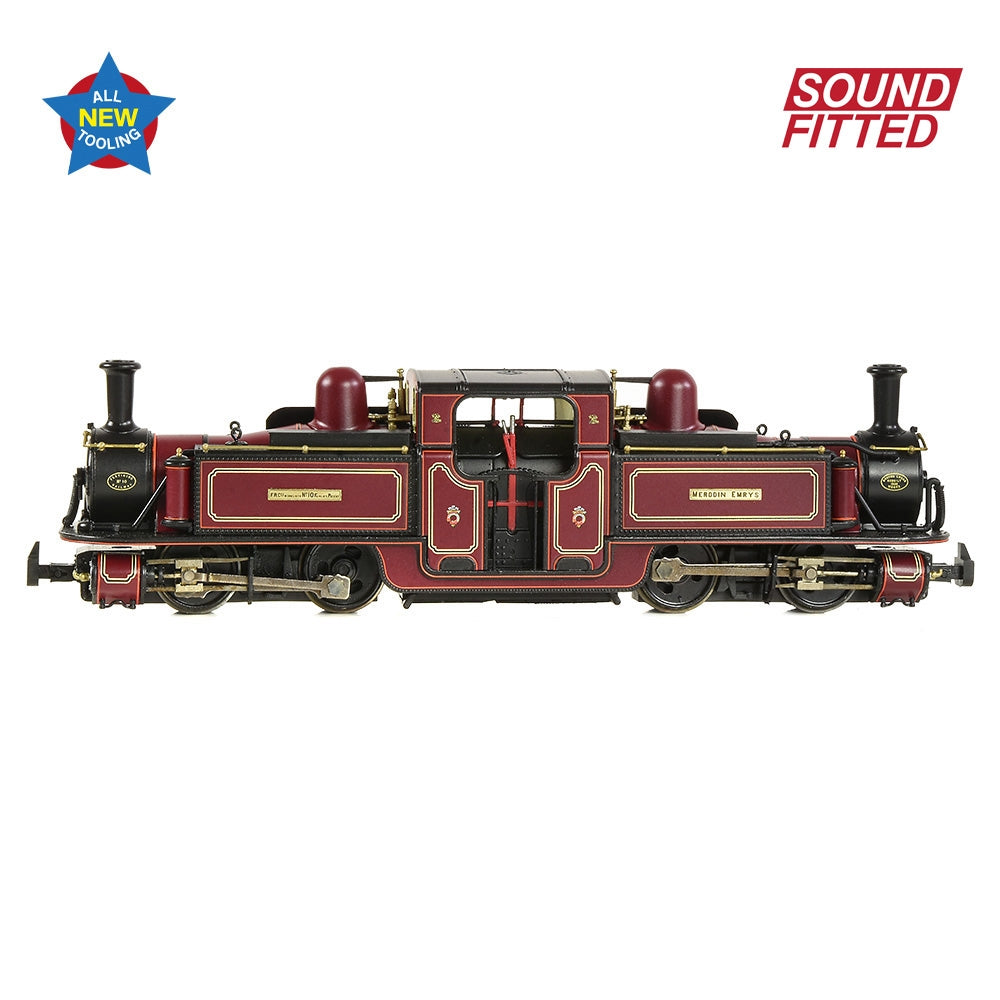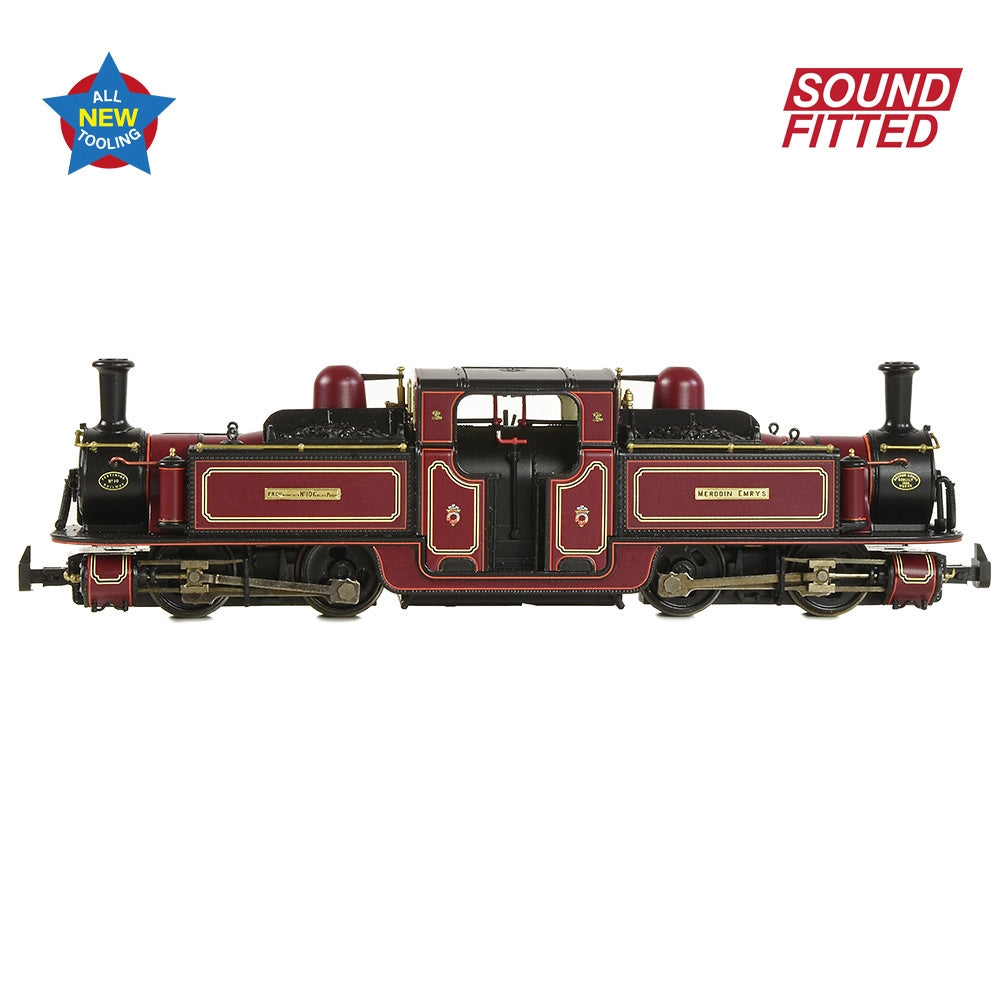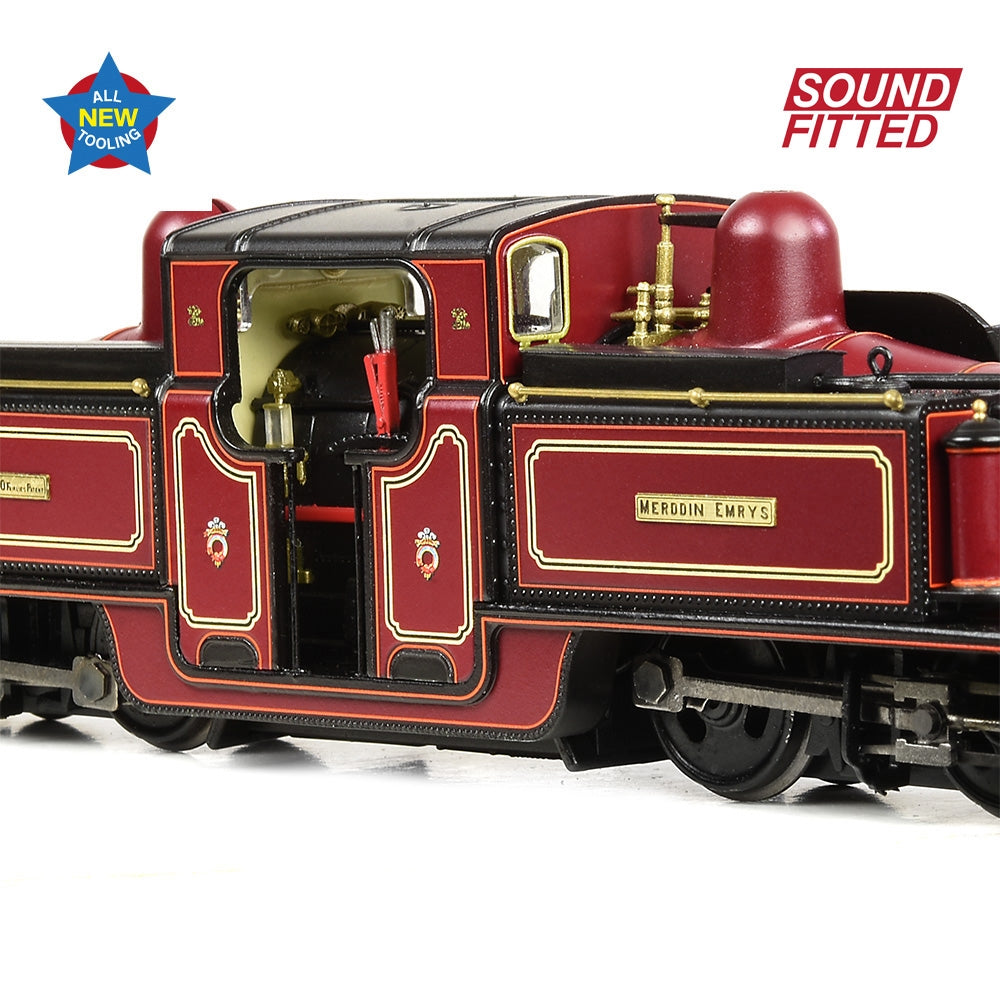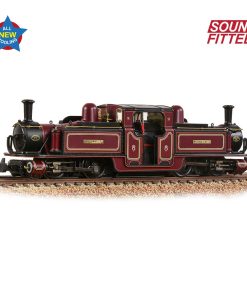BACHMANN NARROW GAUGE OO9 Ffestiniog Railway Double Fairlie ‘Merddin Emrys’ FR Lined Maroon Sound Fitted BACHMANN
$ 542,99 $ 162,90
BACHMANN NARROW GAUGE OO9 FFESTINIOG RAILWAY DOUBLE FAIRLIE ‘MERDDIN EMRYS’ FR LINED MAROON SOUND FITTED
Unveiled as part of the Spring 2022 British Railway Announcements, Bachmann are delighted to present a further version of the Bachmann Narrow Gauge Ffestiniog Railway Double Fairlie Locomotive – following their initial launch in Winter 2021. This version is finished as No. 10 ‘Merddin Emrys’ in Ffestiniog Railway Lined Maroon livery with SOUND FITTED.
The Bachmann Narrow Gauge Double Fairlie locomotive follows in the footsteps of the award winning Baldwin 10-12-D, Bachmann Narrow Gauge’s first OO9 scale locomotive which was released to great acclaim in 2018. Synonymous with the Ffestiniog Railway, the Double Fairlie is an icon of the Narrow Gauge world and this instantly recognisable locomotive is now available in OO9 scale for the first time. The Bachmann Narrow Gauge model incorporates a high level of detail, with tooling designed to accommodate the detail variants seen on the real locomotives in order to produce a model of the highest fidelity, which is brought to life by the exquisite livery application that combines Ffestiniog Railway-specification colours with authentic lining, crests and plates.
The precision moulded bodies are adorned with numerous individual components, including the real brass handrails and the metal tank filler cap rings, along with fine mouldings for parts such as the steam fountain, cab controls and tallow cups. The mechanism is similarly impressive with a twin shaft coreless motor, fitted with twin flywheels, driving both bogies, all-wheel electrical pick up and separate metal bearings fitted to each axle. Suitable for use on DCC or analogue control straight out of the box, this SOUND FITTED model will take your enjoyment to the next level with its authentic sound effects which only enhance the model’s good looks!
- Bachmann Narrow Gauge OO9 Scale
- Era 2
- Pristine Ffestiniog Railway Lined Maroon livery
- Running No. 10
- Named ‘Merddin Emrys’
- Etched Nameplates included
- SOUND FITTED – Fitted with a Zimo MX659N18 DCC Sound Decoder – See below for the function list
- Length 123mm
DETAIL VARIATIONS SPECIFIC TO THIS MODEL
- Short Side Tanks
- Long Belly Tank
- Enclosed Cab with Small Cut Out
- Single-Piece Handrail on Front/Sides of Smokebox
- Smokebox Door Wheel
- Vacuum Brakes Fitted
- Cylindrical Sand Pots
- Coal Space Extension Boards
- Capped Chimney
MECHANISM:
- Coreless, twin shaft motor with two flywheels providing drive to both bogies
- Electrical pickup from all wheels
- Separate metal bearings fitted to each axle
- Diecast metal running plate
- Diecast metal chassis block and bogie towers
- Diecast metal gearboxes, with gearing arranged for prototypical running speeds and haulage capabilities
- 9mm (OO9 narrow gauge) wheels to NEM310 standards with authentic profile and detailing
- Coupling pockets to NEM355 standards fitted to each bogie, into which a standard OO9 coupling hook assembly is fitted
- Designed to operate on curves of first radius (228.6mm) or greater
DETAILING:
- Highly detailed and decorated cab interior including separately fitted regulators and gauge frames
- Separately applied details including Tallow Cup Lubricators, Steam Fountain, Sand Pots with turned brass detail (where applicable), Smokebox Dart/Wheel, Vacuum Pipework (where applicable), Brass Handrails and metal Tank Filler Cap Rings.
- Each model supplied with a set of authentically decorated etched name plates
DCC:
- Next18 DCC decoder interface
- Easy-access DCC decoder socket located behind removable panel on underside of model
SOUND:
- Speaker installed in all models for optimum sound reproduction
- Zimo MX659N18 DCC Sound Decoder fitted to SOUND FITTED versions
- Sound files produced specifically for the Bachmann Narrow Gauge Double Fairlie using recordings from real locomotives
- SOUND FITTED models operate on DCC and Analogue control as supplied
LIVERY APPLICATION:
- Authentic liveries applied to all models
- Multiple paint applications employed on each model using Ffestiniog Railway specification colours
- Logos, numerals and text added as appropriate using multi-stage tampo printing incorporating authentic typefaces, logos, crests and colours
SOUNDS
F1 – Sound – On/Off
F2 – Brake
F3 – Cylinder Drain Cocks
F4 – Bell Whistle (Speed Related)
F5 – Reverser
F6 – Shovelling Coal
F7 – Injectors
F8 – Alternative Bell Whistle (Speed Related)
F9 – Flange Squeal (Speed Related)
F10 – Speed Lock
F11 – Hand Brake (Functional)
F12 – Water Tank Filling
F13 – Coupling Clank
F14 – Light Engine Mode
F15 – Fade All Sounds
F16 – Guard’s Whistle
F17 – Enable Auto Wagon Buffering
F18 – Chime Whistles (Speed Related)
F19 – Stainer Hooter (Speed Related)
F20 – Shunting Mode
F21 – Safety Valves Lifted
F22 – Blower
F23 – ‘Right o’ way’
F24 – ‘Clear to set back’
F25 – Volume Down
F26 – Volume Up
Analogue Users: Please note that normal load running sounds, acceleration steam chuff sounds and any other automatic and randomised sounds will also operate when this model is used on analogue control (DC) straight from the box!
DOUBLE FAIRLIE HISTORY
The iconic Double Fairlie uses the design of Scottish engineer Robert Francis Fairlie which was patented in 1864. The design employs a single boiler carried above a pair of independently controlled pivoting power bogies. The benefits of this design allowed a large locomotive to be built that operates equally effectively in forward and reverse, one which could navigate sharp curves or undulating track unlike rigid wheelbase locomotives and could utilise all its weight for traction – not wasting any on carrying wheels or tenders.
The first Double Fairlie built for the Ffestiniog Railway was completed by George England & Co. of London in 1869. Named ‘Little Wonder’, the locomotive was essentially a pair of 0-4-0 Ffestiniog ‘England’ chassis pivoting under a combined boiler. The success of this locomotive in trials on the Ffestiniog Railway showcased the potential of steam powered narrow gauge railways to a worldwide audience and began a long running association of the Fairlie locomotive and the Ffestiniog Railway that can still be seen today. ‘Little Wonder’ generated so much publicity for Fairlie that in return, he granted the Ffestiniog Railway with unrestricted use of his patented design.
A second Double Fairlie locomotive was commissioned for the Ffestiniog Railway, learning lessons from ‘Little Wonder’, and ‘James Spooner’ was completed by the Avonside Engine Company of Bristol in 1872.
The first Double Fairlie to be built at the railway’s own workshops at Boston Lodge was to be named ‘Merddin Emrys’ after the legendry Welsh wizard. The order was placed for the frames in 1877 and an erecting shop was built especially for the construction of the loco. It emerged in 1879 and contained many of the features of the Double Fairlie that we all associate the railway with today. ‘Livingston Thompson’ was next to be outshopped by Boston Lodge in 1886, and then followed a 93 year wait for the next, ‘Earl of Merioneth’, which was built in 1979. With limited funds available, ‘Earl of Merioneth’ was finished with a somewhat economical appearance and quickly gained the nickname ‘The Square’ amongst enthusiasts.
‘David Lloyd George’ is the most recent Double Fairlie to be completed, emerging from Boston Lodge in 1992, and all four engines built in-house by the Ffestiniog Railway remain extant. As of 2021 ‘Merddin Emrys’ and ‘David Lloyd George’ are in traffic, ‘Livingston Thompson’ can be found on display in the National Railway Museum, York, and ‘Earl of Merioneth’ is in long term storage. A new locomotive, to be named ‘James Spooner’, is currently under construction and will be the fifth Double Fairlie to be outshopped from the Ffestiniog Railway’s own Boston Lodge works once construction is completed.
Quick Shipping and Professional Packaging
Due to our long-term partnership in a long-standing partnership with UPS, FedEx, DHL and many other leading global carriers, we are able to offer an array of shipping options. Our warehouse staff are highly trained and will pack your products according to our precise and precise specifications. Your items will undergo a thorough inspection and be securely secured prior to being delivered. We ship to thousands clients each day across multiple countries. This is an indication of our dedication to being the biggest online retailer in the world. The warehouses are located in Europe as much as they are in the USA.
Note: Orders that include more than one item are assigned a processing time in accordance with the item.
Prior to shipment before shipping, we'll inspect thoroughly the items you've ordered. The majority of orders are shipped within 48 hrs. The time to deliver varies from 3-7 days.
Returns
We don't manage the stock in our warehouse and factory. Stocks are subject to change at any moment. You may not receive your order after the order has been made.
Our policy is for 30 days. If you have passed 30 days by since your purchase, unfortunately we can't offer you a refund or exchange.
The item cannot be used and in its original condition. It should also be in the original packaging.
Related products
RADIO CONTROL
RADIO CONTROL
RADIO CONTROL
RADIO CONTROL
RADIO CONTROL
(Clearance Item) HB RACING 5 Cell Main Chassis 2.5mm with Battery Tray (Cyclone) HB RACING
RADIO CONTROL
RADIO CONTROL
RADIO CONTROL
RADIO CONTROL
RADIO CONTROL
RADIO CONTROL
RADIO CONTROL
RADIO CONTROL
RADIO CONTROL
